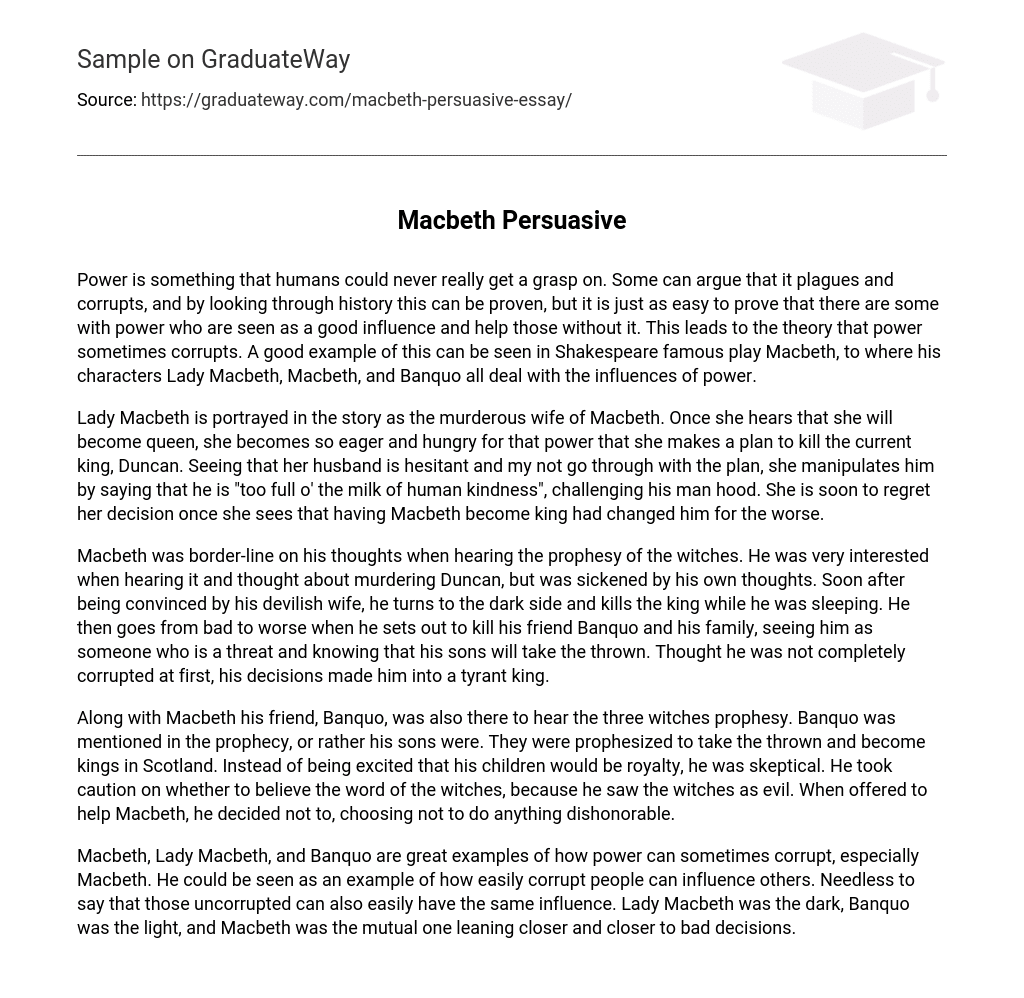Throughout history, humans have wrestled with comprehending the nature of power. Certain individuals argue that power inevitably breeds corruption and devastation. Nonetheless, there are occurrences where influential figures employ their authority for benevolence, assisting those who are disadvantaged. This suggests that power has the potential to corrupt only in specific scenarios. In Shakespeare’s renowned play Macbeth, characters such as Lady Macbeth, Macbeth himself, and Banquo all face the consequences of wielding power.
Lady Macbeth is depicted as a wife who commits murder driven by her ambition to become queen. Upon realizing that she will attain this authority, she becomes entirely consumed with desire and devises a strategy to assassinate King Duncan. Aware of her husband’s hesitancy and fear of backing out, she shrewdly manipulates him by challenging his masculinity and insinuating his excessive kindness. Nevertheless, she swiftly realizes the consequences of her actions as Macbeth’s ascent to power brings about an adverse transformation in him.
Macbeth’s mind teetered on the edge upon hearing the witches’ prophecy. A mix of fascination and revulsion consumed him as he contemplated murdering Duncan. Ultimately, persuaded by his diabolical wife, he succumbs to the darkness and unleashes his violent act while the king rests. The descent into further darkness continues as Macbeth plots to eliminate his friend Banquo and his family, perceiving them as potential threats to his reign, with their sons poised to claim the throne. Although not entirely corrupted initially, Macbeth’s choices ultimately transform him into a tyrannical ruler.
Alongside Macbeth, his companion Banquo was present to listen to the three witches foretell the future. In the prophecy, Banquo’s offspring were mentioned as future rulers. Specifically, they were destined to ascend the throne and become kings of Scotland. Rather than embracing the prospect of his children’s royalty, Banquo remained doubtful. He exercised caution in deciding whether to trust the witches’ words, perceiving them as malevolent. Despite being offered assistance to aid Macbeth, Banquo opted against participating in any dishonorable actions.
Macbeth, Lady Macbeth, and Banquo all demonstrate how power can corrupt individuals, particularly Macbeth. He serves as a prime example of how easily corrupt individuals can sway others. However, it is important to note that those who remain uncorrupted also possess the ability to exert the same influence. While Lady Macbeth represents darkness and Banquo represents light, Macbeth stands as a neutral figure gradually succumbing to poor choices.





